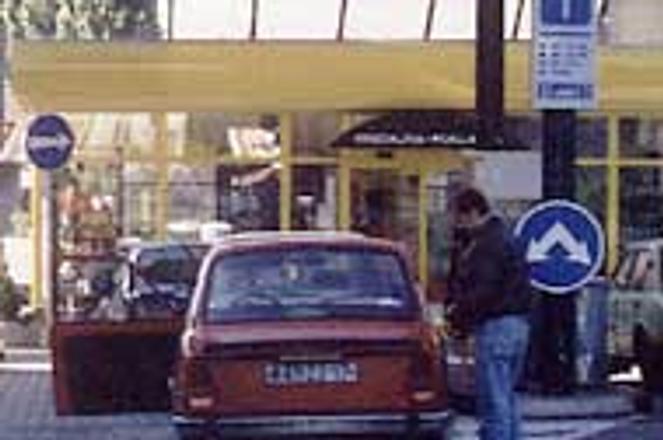SLOVAKS have seen petrol prices rise by 10 percent since the end of July.photo: TASR
NEW tax measures introduced on August 1 have resulted in petrol price rises of 9 percent. Experts expect retail prices to rise in response.
One of the largest petrol retailers in the country, Slovnaft, reported that it had raised prices by Sk3.20 (€0.074) per litre, following a Sk1 increase midway through June. Other companies have made similar increases.
The price rise brings the price of petrol in Slovakia to a similar level to those in Hungary, the Czech Republic, and Austria, although Slovakia's northern and eastern neighbours, Poland and Ukraine both have much lower prices.
Analysts point out that the buying power in Slovakia is much lower than all those countries except Ukraine, with Slovak wages at less than two-thirds of levels in Hungary, Poland, and the Czech Republic and only a sixth of those in Austria.
Opposition party Smer has reacted to the price rises by putting up black billboard posters echoing the ruling Slovak Democratic and Christian Union campaign slogan from last year "Blue is good", and adding "and petrol more expensive". Smer leader Robert Fico said that the colour of the billboards symbolised Slovakia's black future under the present administration.
Although the price rise will be most noticeable in the short term for motorists, experts believe that most consumers will feel the increase in the near future.
"The effects will clearly be mainly in agriculture and potentially follow on in the prices of goods, and also in public transport," Slávia Capital analyst Pavol Ondriska told Radio Twist.
Jozef Kollár, vice-president of the Association of Employers' Unions and Associations, added: "The impact from [the increase in] the price of motor oil and petrol will be on the whole economy, as few appreciate."
Consumers have already seen fare increases on some long-distance bus routes of up to 11 percent since the fuel price rise.
With these price rises and increases in duty on cigarettes and beer, which have also come into effect this month, analysts predict that inflation this year will be higher than originally expected.
Bank analyst Marek Gábriš told TV Markíza: "The increase in duty will naturally mean a rise in inflation. And when the prices of some goods, such as cigarettes, are already higher, inflation will gradually increase and be above 9 percent over the year."
Finance Minister Ivan Mikloš remains unconvinced that the effect will be so great.
"As we don't know how this move in prices will influence changes in consumer behaviour, we simply can't say. If we base our calculations on today's buying structure, then of course it will change," he said.
Slovakia already has the highest inflation of all the ten candidate countries due to join the European Union next May. In June, the year-on-year inflation was 8.7 percent. The next highest rate was in Slovenia at 6.2 percent.


